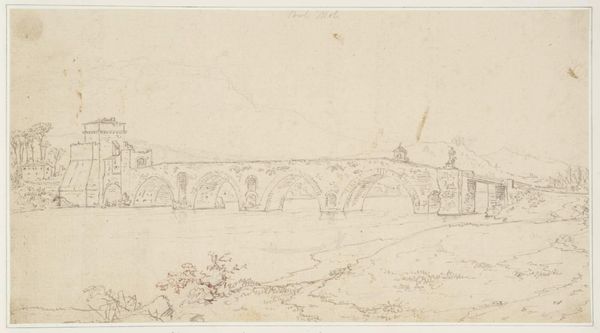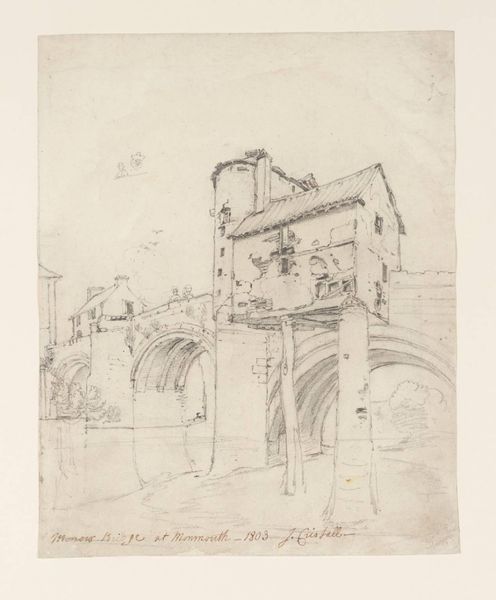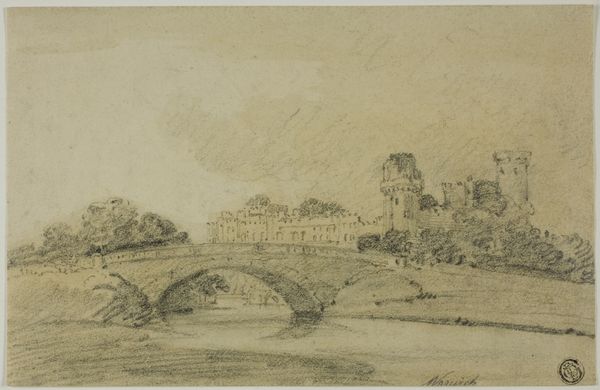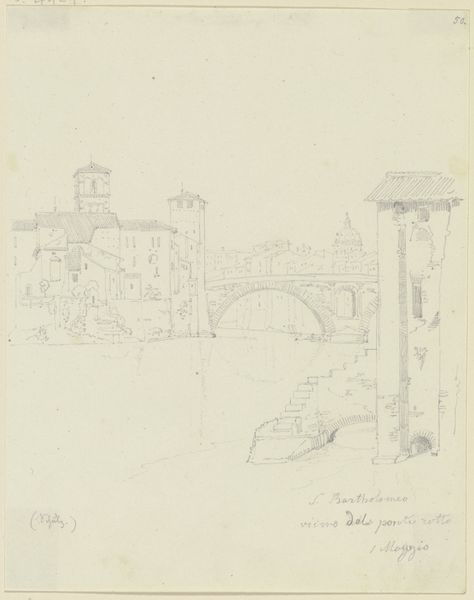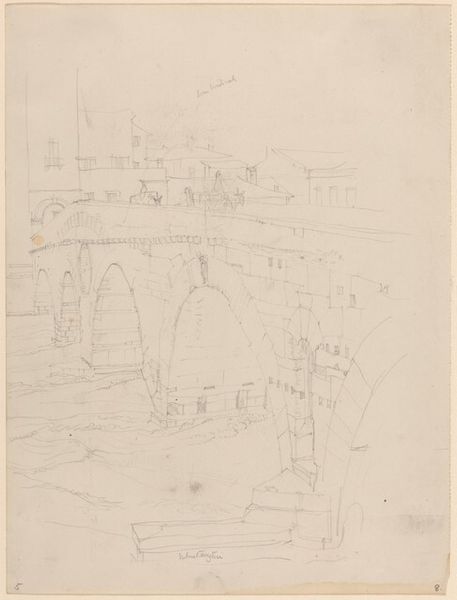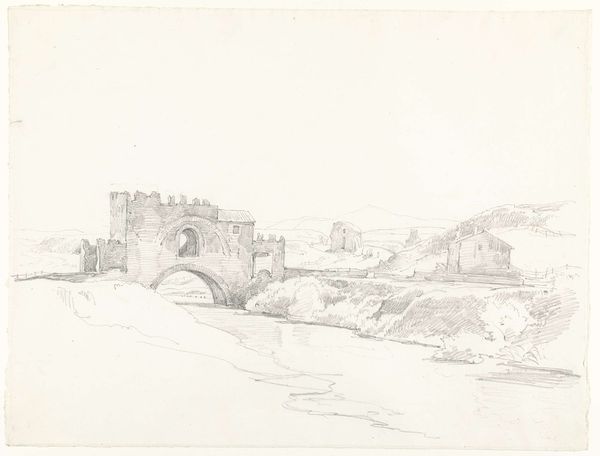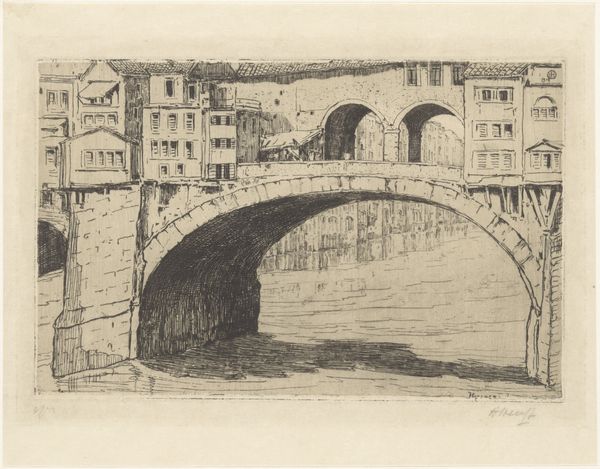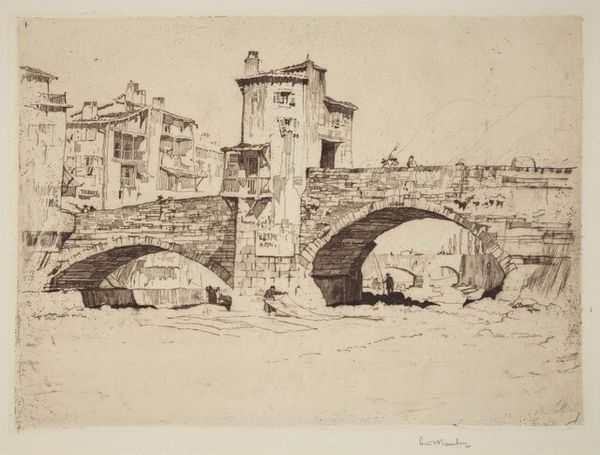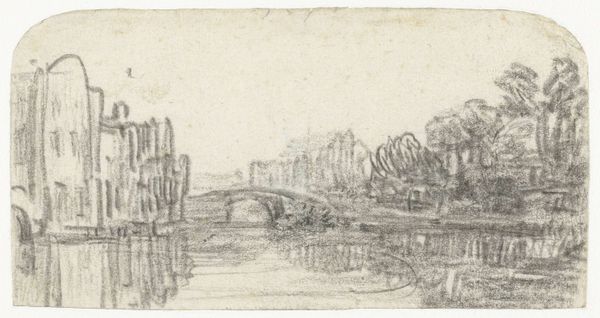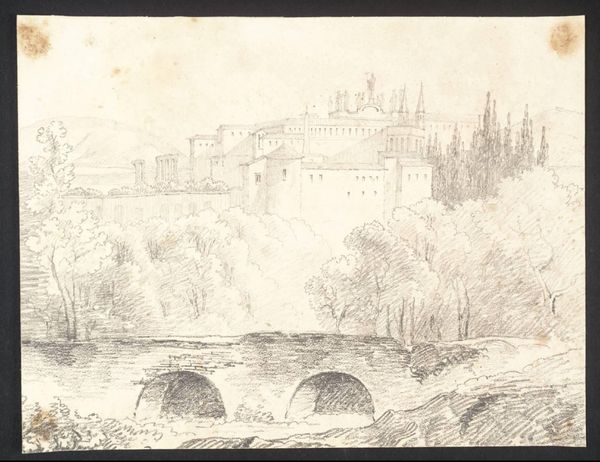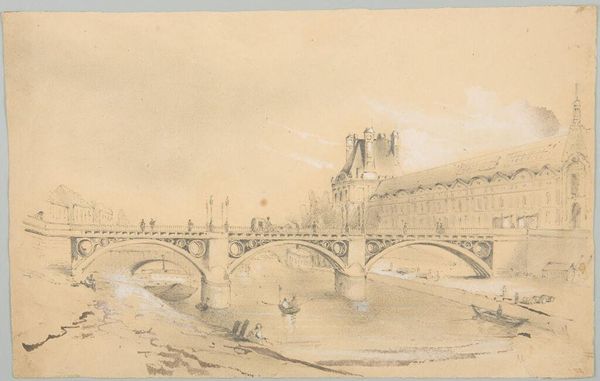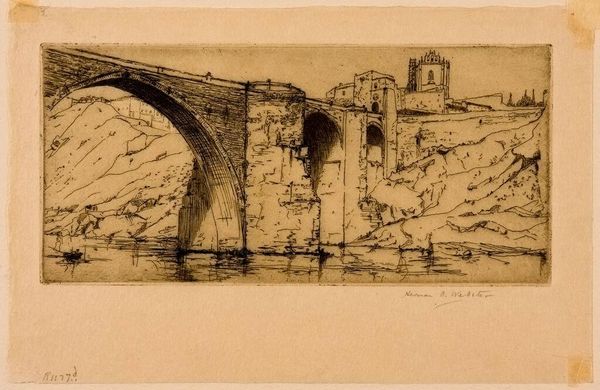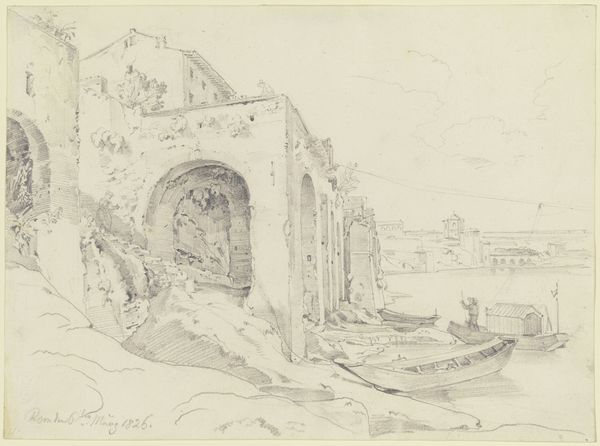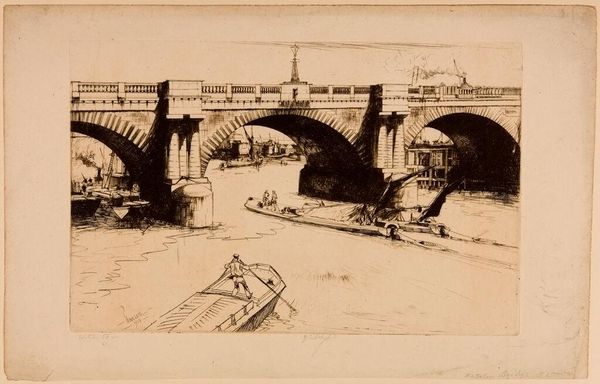
Dimensions: support: 180 x 263 mm
Copyright: CC-BY-NC-ND 4.0 DEED, Photo: Tate
Curator: Here we have Richard Wilson's delicate pencil drawing, "Bridge of Augustus at Rimini," part of the Tate Collections. It captures the iconic Roman bridge with a remarkable economy of line. Editor: There's a palpable sense of the monumental, even within the sketch's modest dimensions. You immediately sense the weight of history, of civilisations layered upon one another. Curator: Indeed. Wilson, born in 1712, was deeply influenced by classical ideals. Notice how he uses the bridge not just as architecture but as a potent symbol of Roman power and enduring legacy. Editor: But it's not just about celebrating empire. There's a critical element here. Think about how bridges function - connecting disparate places, facilitating trade and the movement of people. It's a commentary on connectedness. Curator: Yes, the arch itself is a powerful symbol of transition and passage. It appears repeatedly in art, signaling transformation. Wilson uses it to show the bridge's importance to both past and present societies. Editor: This drawing feels so contemporary, almost like an architectural rendering for a future project. Thinking about the role of infrastructure in the 21st century really reframes how I interpret its artistic merit. Curator: It's a powerful reminder that images echo through time, connecting us to the past and informing our present. Editor: Absolutely. It makes you wonder about the unseen stories crossing that bridge, then and now.
